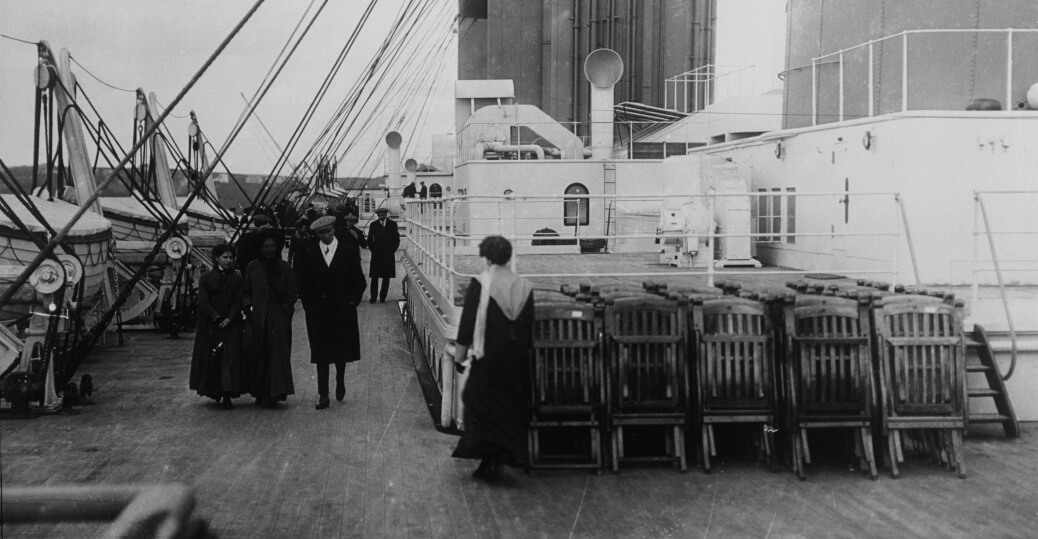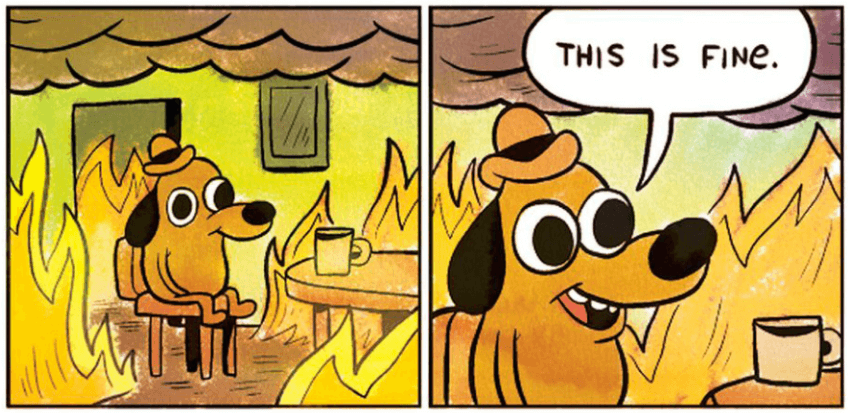If your livelihood depends on your ability to be creative and generate ideas, you don’t have the luxury of wasting precious mental energy and focus on meaningless tasks, busy work, and constant interruptions.
You can’t just “punch the time clock” at 5pm, you work until the job is done. And how you budget your mental energy and focus determines whether or not you’re leaving at a decent hour or chronically putting in late nights fueled by Red Bull and Chinese takeout.
If you’re tired of spinning your wheels all day doing “stuff” yet you feel like you never actually accomplish anything, before searching for the next productivity app or time management hack, ask yourself these five questions first:
- How distracted are you during a regular workday?
- How accommodating are you to the “urgent” needs of others?
- How accommodating are you to your own “urgent” needs?
- Have you clearly defined WHY your next action is truly important?
- Are you 100% confident your next action is even the right action?
I was recently chatting with a private coaching client about time management, and she shared with me that her greatest struggle is prioritizing what needs to get done during any given workday.
She laid out with me no less than seven huge projects she was contemplating starting or already working on, and she felt frazzled trying to juggle all of the different tasks and goals. Being an ambitious “creative,” she had a tendency towards being distracted easily (Squirrel!!!!), and she would often procrastinate and end up getting nothing done at all. This led to guilt, self-loathing, and unfortunately even a divorce due to all of the unfulfilled promises in her relationship.
Her current solution to staying focused was creating an accountability system whereby she would keep track of all the tasks she completed during the day and then email it to someone to prove that she had a productive day and didn’t waste her time.
My question to her was:
“Does a long list of completed tasks prove that you’ve gotten anything meaningful done during your day?”
Silence.
The ‘Theater of Work’
For tens of thousands of years mankind has simply lived in survival mode. There was no such thing as a “schedule,” we worked according to our needs.
Food? Check. Water? Check. Shelter? Check.
Then as culture became more civilized and we became farmers and specialists, it was a matter of working until the job was done.
Are the fences built? Check. Animals fed? Check. Horses shod? Check.
It wasn’t until the industrialization of our society in the 19th century that we began measuring “output” and working year-round for a specified number of hours per day and weeks per year. The term productivity was only first used in an economic sense starting in 1899, defined as “rate of output per unit.”
Made the maximum number of widgets in forty hours per week? Check.
Fast-forward to today and we’ve been conditioned to believe that we must look busy every single minute of the day in order to “appear” productive.
God forbid our boss walks by and we’re smiling, laughing, or chatting with a co-worker. Or imagine the sheer horror of our boss looking for us and we’re not even in our office because we’ve taken a quick walk around the block to clear our heads and solve a creative problem (but it’s more than okay to take five smoke breaks per day?).
To avoid the embarrassment or outright fear of getting reprimanded for not being “busy,” we’ve conditioned ourselves to constantly be doing something…anything…so it appears as if we’re getting things done.
Looked busy while making widgets for forty (to eighty) hours per week? Check.
We’ve become so consumed with measuring how much we work and how much we’re producing that we’ve lost sight of whether or not the work we’re doing needs to be done at all.
We have become actors in the “theater of work.”
Productivity Isn’t About Apps
The 21st century solution to unknowingly getting sucked into the ‘Theater of Work’ has been technology. Because we find ourselves constantly spinning our wheels all day long and not achieving any of the larger goals we set for ourselves, we think the solution is fancy to-do list apps, calendar apps, project management apps, and complicated systems (with apps to help us use those systems).
There’s no question that I love me some Trello, and I live and die by David Allen’s ‘Getting Things Done’ productivity system, but lost in all the noise about becoming more productive and maximizing output are the fundamental components of what is necessary to truly consider yourself “productive.”
Omnifocus will absolutely help you get more things done during the day, but are they important things?
BusyCal is an awesome schedule tool, but are you scheduling the right commitments at the right times?
Trello will absolutely help you organize your life, but are you spending time organizing the right things?
You can only call yourself a truly productive person if every single action you take moves you towards your much larger goals.
Otherwise you’re just rearranging the deck chairs on the Titanic.

It’s Time to Be Honest With Yourself
If you intend to achieve the goals you set for yourself in life, before running to the App Store and buying the top ten rated productivity apps of the day, try asking yourself these five questions first.
1. How distracted are you during a regular workday?
Busy people pride themselves on being able to multitask. It looks so impressive to be able to simultaneously do creative work, answer emails, respond to text messages and tweets (and Facebook messages and Instagram and Pinterest and Snapchat….ugh I give up), and furthermore keep an “open door policy” because you always want to be available to others. But the reality is the human brain simply isn’t capable of processing more than one complex task at a time.
Multitasking has been proven to diminish productivity by up to 40%.
While you think you’re masterfully juggling 6 balls at once, consider for a second that you are just rapidly juggling one ball at a time and expending a tremendous amount of energy keeping up the illusion that you are “juggling”…energy that could instead be applied to your creative work instead.

As Cal Newport points out in his book Deep Work, there is a cost to switching from one task to the next called “attention residue,” and it can take upwards of 20-25 minutes after a single distraction to get back into a state of creative flow.
Learn more about the concept of ‘Deep Work’ in my interview with author Cal Newport
Instead of going out of their way to appear busy, productive people focus intensely on a single action at a time and protect their attention. If your livelihood depends on doing intense creative work, avoiding multitasking shouldn’t be a luxury – this should be the rule.
ACTION STEP:
The next time you have a creative task ahead of you, whether it be film editing, writing, drawing, or even just brainstorming ideas, challenge yourself to eliminate all distractions and work in a focused time block for a minimum of 25 minutes (my default time block is 55 minutes and I generally do at least 5 per day).
» Here’s a quick primer on how to set up your first productive time block
2. How accommodating are you to the “urgent” needs of others?
Busy people love the word “yes.” It is their default answer whenever someone requests their time, energy, or attention. Accommodating the needs of others is the number one priority of busy people. Emails are answered in 5 minutes or less. They agree to any and all meetings, lunches, and answer all impromptu phone calls. Anything urgent is always prioritized before something important.
Busy people live their lives as office firefighters always putting out the next most immediate fire.

It’s easy to blame modern society, but the sense of urgency we feel pressured by all day long has nothing to do with the ability of others to reach you instantly via email, phone, social media, or otherwise. This phenomenon is basic human nature.
In the American Magazine article ‘Why I Quit Being So Accommodating,’ an uncredited author explains in great detail how being so accommodating to the urgent needs of everyone around him may have anointed him a “Good Fellow” amongst his friends and family, but it ultimately cost him his happiness. By the way…this article was written in 1922. Clearly not much has changed in almost a century.
“You are thirty-five years old,” I said to myself. “More than half of your life has already been spent. Who is living your life, anyway? Is it actually yours? Or is it a kind of public storehouse of odd jobs? A pile of days and hours put on the counter of the world with a sign inviting every Tom, Dick, and Harry to take one?”
While the default answer for busy people is “yes,” to anything urgent the default answer for productive people is almost always “no,” unless the request is important and the clear answer is “hell yes!”
Note: If you’re unaware of the difference between urgent and important, listen to my podcast with Greg McKeown to learn more about the concept of ‘Essentialism.’
A productive person is able to confidently turn down what appear to be great opportunities because they most likely have created a “decision matrix” that allows them to weigh the benefits and drawbacks of each opportunity and know almost immediately if it will allow them to achieve their most important goals.
ACTION STEP:
The next time someone makes an urgent request of you or presents you with what appears to be a fantastic opportunity, rather than immediately rushing to the default answer of “Absolutely!” instead try answering with, “This sounds like a great opportunity. Let me check my calendar and my current priorities and get back to you.”
And when all else fails, try this:
“I don’t mean to be rude, but your emergency is not MY emergency.”
3. How accommodating are you to your own “urgent” needs?
Feeling like you’ve reached the end of a 12 hour day with nothing to show for it is demoralizing, and it’s easy to blame the urgent needs of others and their constant requests of your attention for your lack of productivity.
But perhaps you are actually your own worst enemy.
It’s extremely common to overcommit because you have underestimated how much you can accomplish in any given day, and conversely it’s equally as common to underestimate how much you can accomplish over a longer period of time and assume there’s no point in committing to bigger goals at all.
“We always overestimate the change that will occur in the next two years and underestimate the change that will occur in the next ten. Don’t let yourself be lulled into inaction.”
– Bill Gates
When faced with an overwhelming amount of stuff that needs to get done, it’s so much easier to either jump into the simple stuff first or outright procrastinate because you don’t have the energy to take on the harder stuff.
The number one fallacy of using a “to-do list” to organize your life is that it’s simply a list of random tasks you’d like to complete, but in creating this list have you taken the time to ask:
- Which tasks should be completed first? (even if you don’t want to do them first because they’re the difficult tasks)
- How long will each of these tasks take?
- Which tasks feel “urgent” but really aren’t “important” to my goals at all?
If you’ve never asked yourself any of these questions before you dive right into checking off a bunch of random tasks, then most likely you haven’t defined your “macro goal” and the “micro goals” that are necessary to lead you closer to that macro goal.
Rather than crossing off a bunch of “things” on a random to-do list and feeling busy, productive people measure their output by the weighted importance of a particular task. In order to accomplish important things, they step back and assess how much time a task will take to complete and when the best time is to work on it based on the other important tasks on their list.
A productive person would rather complete one important task the entire day than twenty meaningless tasks. Because accomplishing their “One Thing” will make the rest of the day’s tasks either easier or completely unnecessary.
Not familiar with the concept of defining your “One Thing”? Check out my podcast with best-selling author and productivity expert Jay Papasan.
ACTION STEP:
The next time you jump into your to-do list, try taking fifteen minutes and organizing your to-do list as blocks of time on your calendar instead, a process I’ve gamified and like to call “Calendar Tetris.” Doing so forces you to think much more realistically about the time required for your tasks, and it also forces you to think about whether or not the time blocks you’ve chosen will conflict with other commitments during your day.
4. Have you clearly defined WHY your next action is truly important?
As you get ready to take on your next task, if there’s a nagging voice in the back of your head asking, “So….why am I doing this again?” then you’ve already lost the war.
Not knowing why you’re about to put your time and energy into any given task is what leads your mouse down the endless black hole of social media, 57 open browser tabs that you will “read eventually,” and videos of cats chasing laser lights (which yields just under 2.4 million search results, by the way).
If you just spent the last 2 minutes watching this, you’re probably procrastinating because you don’t know why you should be doing the task you’re doing right now.
As tasks pile up, as the urgency mounts, and as the sense of dread and overwhelm sets in that you’re simply never going to have an empty to-do list, the tendency for busy people is to kick into overdrive and power through as many tasks as possible with the end goal simply being…a shorter to-do list.
Productive people are okay with the fact that life is going to be “messy” and the to-do list will never be empty. The pile of mail might stack up for a while, they might get behind on their laundry, and they might have unanswered emails or phone calls that need to be returned. All of these things are necessary casualties of accomplishing important tasks like writing a book or screenplay, building an online business, editing a film, learning a complicated skill, or painting a masterpiece.
A productive person is able to avoid all of the meaningless drudgery of daily life because they have attached a deeper ‘Why’ to their actions. Letting smaller tasks and email accumulate is easy if that time is sacrificed to learn a complicated skill that will lead to a promotion, increased income, and more quality time spent in the evenings with their children because the promotion they will earn affords them a more flexible schedule.
ACTION STEP:
Before plowing into your to-do list simply for the end goal of making it smaller, instead ask yourself:
“WHY is accomplishing my biggest goal right now important to me?”
And then once you have done so…ask yourself why again.
And then once you have done so…ask yourself why yet again.
And then once you have gone as deep as you think you can go, ask yourself how accomplishing your greater goals will benefit the most important people in your life.
If you want to dig deeper into the concept of ‘Why Stacks,’ check out my podcast with high performance coach Jeanette Goodrich.
5. Are you 100% confident your next action is the right action?
The number one thing that determines your true level of productivity is the level of confidence you have when asking yourself the following question:
“Is the next action I’m about to take the right action that will lead me towards my greater goals?”
If your confidence level is not at 100%, you will procrastinate because you are unsure if you should be doing something at all.
If your confidence level is not at 100%, you will be easily led to distraction because you don’t want to think about what else you should be doing instead.
If your confidence level is not at 100%, you will eventually burnout because you are not passionate about the work you’re doing.
I already know what the busy people are thinking:
“I don’t have time to stop working and think about which actions are the right actions…I have too much to do!”
A busy person assumes the way to maximize productivity is to be “doing” every single minute of the day. Time is something that must always be spent but never invested. It’s the same mindset as thinking, “Why would I maximize the amount of money I’m investing in retirement? I won’t have that money for decades and I have expenses today.”
A productive person on the other hand understands that one hour of planning has an infinitely greater effect on their productivity than an equal hour of doing. Because that single hour allows them to strategize an entire week or more of important tasks while also creating space to take care of the busy work.
Like investing in a 401k, compound interest applies to your time as well. An hour of planning can yield an additional five-fold increase in your productivity as time progresses. A productive person knows that front-loading the hard work to prioritize their time, energy, and attention will lead to absolute and complete confidence that their next action is unequivocally the right action.
FINAL ACTION STEPS:
- Before jumping into the next 100 items on your to-do list, block out 60 minutes on your calendar, eliminate all outside distractions, and answer the above five questions about yourself with 100% honesty. This exercise is not about judgment, it’s about developing awareness of how you manage and respond to the requests and expectations of daily life.
- If you’re not happy with any of your answers and you’re interested in developing laser-sharp focus and taking real action towards the most important goals in your life, having complete clarity on what needs to get done, and having 100% confidence that you are doing what’s necessary, then I invite you to join the waitlist for my ‘Focus Yourself’ program so you are the first to know when beta enrollment opens (and get a steep discount). I’ll even send you my 50 page ‘Ultimate Guide to Optimizing Your Creativity (And Avoiding Burnout)’ as a bonus!

